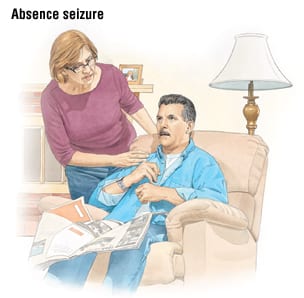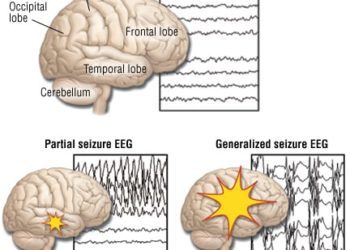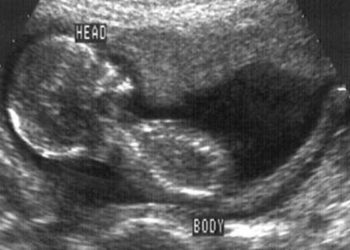Patient Basics: Epilepsy
Originally published by Harvard Health.
What Is It?
Epilepsy is a nervous system condition. It causes repeated, sudden, brief changes in the brain’s electrical activity. These changes cause various types of symptoms.
Epileptic episodes are called seizures or convulsions. During a seizure, brain cells fire uncontrollably at up to four times their normal rate. Seizures temporarily affect the way a person behaves, moves, thinks or feels.
There are two main types of seizures:
- A primary generalized seizure involves the entire brain.
- A partial seizure begins in one brain area. It affects only part of the brain. However, a partial seizure can turn into a generalized seizure.
Many conditions can affect the brain and trigger epilepsy. These include:
- Brain injury, either before or after birth
- Brain tumors
- Infections, especially meningitis and encephalitis
- Genetic conditions
- Abnormal blood vessels in the brain
- Lead poisoning
In most people with epilepsy, the specific cause is unknown.
Symptoms
The symptoms of epilepsy vary. They depend on how much of the brain is affected, and where the affected area is located.
Primary generalized seizures:
- Generalized tonic-clonic seizure (grand mal seizure) — The person loses consciousness. He or she falls to the ground and temporarily stops breathing. All body muscles tense up at once for a short period. This is soon followed by a series of jerking movements. Some people also lose bowel or bladder control.
The seizure episode may last for a few minutes, during which a person is unconscious. When someone wakes up from a generalized tonic-clonic seizure, they are lethargic and confused. This usually lasts minutes, but it can last hours. There may be muscle soreness and a headache.
- Absence seizure (petit mal seizure) — Loss of consciousness is so brief that the person usually doesn’t change position. For a few seconds, the person may:
- Have a blank stare
- Blink rapidly
- Make chewing movements
- Move an arm or leg rhythmically.
This type of seizure usually begins in childhood or early adolescence.
Partial (focal) seizures:
- Simple partial seizure —The person remains awake and aware. Symptoms vary depending on the brain area involved. They can include:
- Jerking movements in one part of the body
- An experience of abnormal smells, sounds, or changes in vision
- Nausea
- Emotional symptoms, such as unexplained fear or rage
- Complex partial seizure — The person may seem to be aware, but is briefly unresponsive. There may be:
- A blank stare
- Chewing or lip-smacking
- Repetitive movements of the hand
- Unusual behaviors, like walking around a room and pulling books off a bookshelf, while not responding to what other people are saying
After the seizure, the person has no memory of the episode.
- Status epilepticus —Occurs when a person has a generalized seizure that lasts 20 minutes or more. It can also result from a series of seizures without fully regaining consciousness. This is a life-threatening medical emergency.
Diagnosis
You may not have any seizure symptoms when you visit your doctor’s office. For this reason, it is important to enlist the help of anyone who has witnessed your seizure. Ask that person to describe exactly what they saw: what happened at the start, what happened next. Write this description down for your doctor. This description will help your doctor determine the type of seizure you had. It will also help to decide on appropriate treatment.
Having a seizure does not mean that a person has epilepsy. For example, it’s common for children to have seizures associated with fever. Most children who have them do not develop epilepsy.
Your doctor will diagnose epilepsy based on:
- Your history
- A thorough physical examination
- A thorough neurological examination
- The results of an electroencephalogram (EEG)
In many cases, your doctor will also order a computed tomography (CT) scan or magnetic resonance imaging (MRI) scan of the brain. Other types of brain scans also may be needed.
Your doctor may want to check whether your seizures are related to causes outside the brain. To do so, he or she may order basic lab tests. These can include blood tests, urinalysis and an electrocardiogram (EKG).
Expected Duration
Epilepsy can be a lifelong condition. But many people with a history of multiple seizures eventually will stop having seizures.
People who are younger when seizures start are more likely to stop having seizures. The same is true for people who have a normal neurological examination.
For most people with epilepsy, seizures can be controlled with medication.
Prevention
The cause of most cases of epilepsy remains unknown. Therefore, there is no way to prevent seizures.
To help prevent epilepsy caused by head injury, you can:
- Wear seat belts while driving.
- Equip your car with air bags.
- Wear an approved helmet while skating, riding a motorcycle or bicycling.
- Use protective headgear for sports.
Anyone with an active seizure disorder should take precautions. These will minimize the risk of injury if a seizure should occur. For this reason, people with epilepsy are advised not to operate a motor vehicle for at least six months after the most recent seizure. The same applies to operating other dangerous machinery.
People with epilepsy should consider wearing some sort of medical identification that describes their condition. This will provide important information to emergency medical personnel.
Treatment
In most cases, treatment begins with one of the many anti-epileptic medications. The type of medication used depends on the type of seizure being treated.
When medication fails to control a person’s seizures, surgery may be considered. If the abnormal electrical activity that triggers each seizure is coming from one particular part of the brain, cutting out that part of the brain can stop the repeated seizures. Of course this kind of brain surgery can cause some permanent problems with brain function, depending on where in the brain the focus of the seizures is. For this reason, the risks of surgery have to be balanced against the benefits. The decision to perform surgery depends on many factors. These include:
- Frequency and severity of seizures
- Patient’s risk of brain damage or other injury from frequent seizures
- Effect on quality of life
- Patient’s overall health
- Likelihood that surgery will control seizure episodes
Status epilepticus is a life-threatening medical emergency. It is treated with medications given intravenously or rectally. Protective measures are also taken. These measures keep the person’s airway open. And they help to prevent injury to the person’s head and tongue.
When To Call A Professional
Call your doctor whenever you or anyone in your family experiences any symptoms of seizure.
Call for emergency help immediately if you suspect that someone with epilepsy has developed status epilepticus.
Prognosis
Most people with epilepsy can control their seizures with medication.
Some people have epilepsy that cannot be controlled with anti-epileptic drugs. Many of these cases can be treated with surgery.
Additional Info
American Epilepsy Society
342 North Main St.
West Hartford, CT 06117-2507
Phone: (860) 586-7505
Fax: (860) 586-7550
http://www.aesnet.org/
Epilepsy Foundation
4351 Garden City Drive
Landover, MD 20785-7223
Toll-Free: (800) 332-1000
http://www.efa.org/






